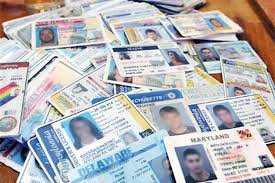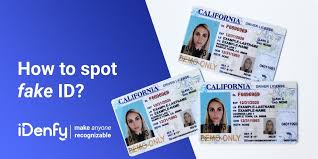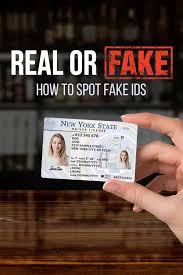birmingham alabama fake ids
Birmingham Alabama Fake IDs: Navigating the Risks and Realities

In Birmingham, Alabama, the issue of fake IDs is a significant concern, particularly among young adults and college students. The allure of a fake ID is often driven by the desire to circumvent age restrictions on alcohol purchases, entry into clubs, or even driving without a proper license. However, the implications of possessing and using a fake ID extend far beyond just gaining illegal access to these activities.
The Prevalence of Fake IDs in Birmingham
Birmingham, as a bustling urban center with a vibrant nightlife and a strong college presence, is a hotspot for the circulation of fake IDs. Students from the University of Alabama at Birmingham (UAB) and other local institutions often find themselves tempted to obtain a fake ID for various reasons. These IDs are typically obtained through online sources, local connections, or even out-of-state providers who specialize in crafting convincing replicas of Alabama state IDs.
Legal Consequences
The legal ramifications of possessing a fake ID in Birmingham are severe. Under Alabama law, using a fake ID is classified as a criminal offense. Specifically, it can be charged as a misdemeanor or, in more serious cases, as a felony. Misdemeanor charges can result in fines, community service, and potentially even jail time. Felony charges, on the other hand, carry much heavier penalties, including significant fines and longer imprisonment terms. Additionally, those caught using a fake ID may face suspension of their real driver's license, further complicating their situation.
For many young people, the long-term impact of a fake ID charge on their record can be devastating. It can affect future job prospects, college admissions, and even housing opportunities. Employers and educational institutions often conduct background checks, and a criminal record for a fake ID can severely hinder a person’s opportunities in life.
The Role of Law Enforcement
Local law enforcement in Birmingham is well aware of the prevalence of fake IDs and actively works to combat their use. Police officers, as well as bartenders and club bouncers, are trained to identify fake IDs. They look for inconsistencies in the ID's design, such as incorrect fonts, colors, or holographic elements. Additionally, they may use ID scanners that can detect whether an ID is legitimate by checking it against a database of valid IDs.
Stings and undercover operations are also common in Birmingham, particularly in areas known for underage drinking or nightlife activities. These operations are designed to catch individuals attempting to use fake IDs, leading to immediate arrest and prosecution.
The Economic Impact on Businesses
The use of fake IDs doesn't just affect the individuals caught using them—it also has economic implications for local businesses. Establishments that serve alcohol, such as bars and restaurants, can face hefty fines or even lose their liquor licenses if they are found to have served minors, even if those minors used fake IDs. This creates a high-risk environment for business owners, who must invest in training their staff to spot fake IDs and implement strict ID-checking policies.
In some cases, businesses may also invest in advanced ID verification technology to protect themselves from the risk of serving underage patrons. While these technologies can be expensive, they are often seen as a necessary investment to avoid the much higher costs of fines or losing their ability to serve alcohol.
Social Implications and Peer Pressure
The social environment in Birmingham can also contribute to the use of fake IDs. Peer pressure plays a significant role, especially among college students who want to fit in with their friends who may be of legal drinking age. The desire to be part of social activities, such as going to bars or clubs, can push individuals to obtain and use fake IDs, despite being fully aware of the legal risks involved.
Moreover, the cultural emphasis on nightlife and drinking as a form of socialization further fuels the demand for fake IDs. For many young people, the ability to participate in these activities is seen as a rite of passage, making the risk of using a fake ID seem worth it in the short term.
Alternatives and Prevention
Addressing the issue of fake IDs in Birmingham requires a multifaceted approach. Education and awareness campaigns aimed at young people can help reduce the demand for fake IDs by highlighting the potential legal and long-term consequences of using them. Schools and universities can play a pivotal role in these efforts by integrating discussions on the dangers of fake IDs into their programs.
Additionally, law enforcement and community organizations can work together to create safe, alcohol-free environments for young people to socialize. Providing alternatives to the traditional bar and club scene can help reduce the pressure to use fake IDs in the first place.
Conclusion
In Birmingham, Alabama, the use of fake IDs is more than just a youthful indiscretion—it is a serious legal issue with far-reaching consequences. While the temptation to use a fake ID may be strong, especially among young adults eager to experience nightlife or gain certain privileges, the risks involved are significant. From legal repercussions to the potential harm to future opportunities, the use of fake IDs is a gamble that can have long-lasting negative effects. Through education, enforcement, and community support, Birmingham can work to reduce the prevalence of fake IDs and protect its young residents from the dangers associated with them.
 Delaware ID Features
Delaware ID Features
 fake ID purchase guide
fake ID purchase guide
 Fake ID Buying Guide
Fake ID Buying Guide
 benefits of fake ID
benefits of fake ID